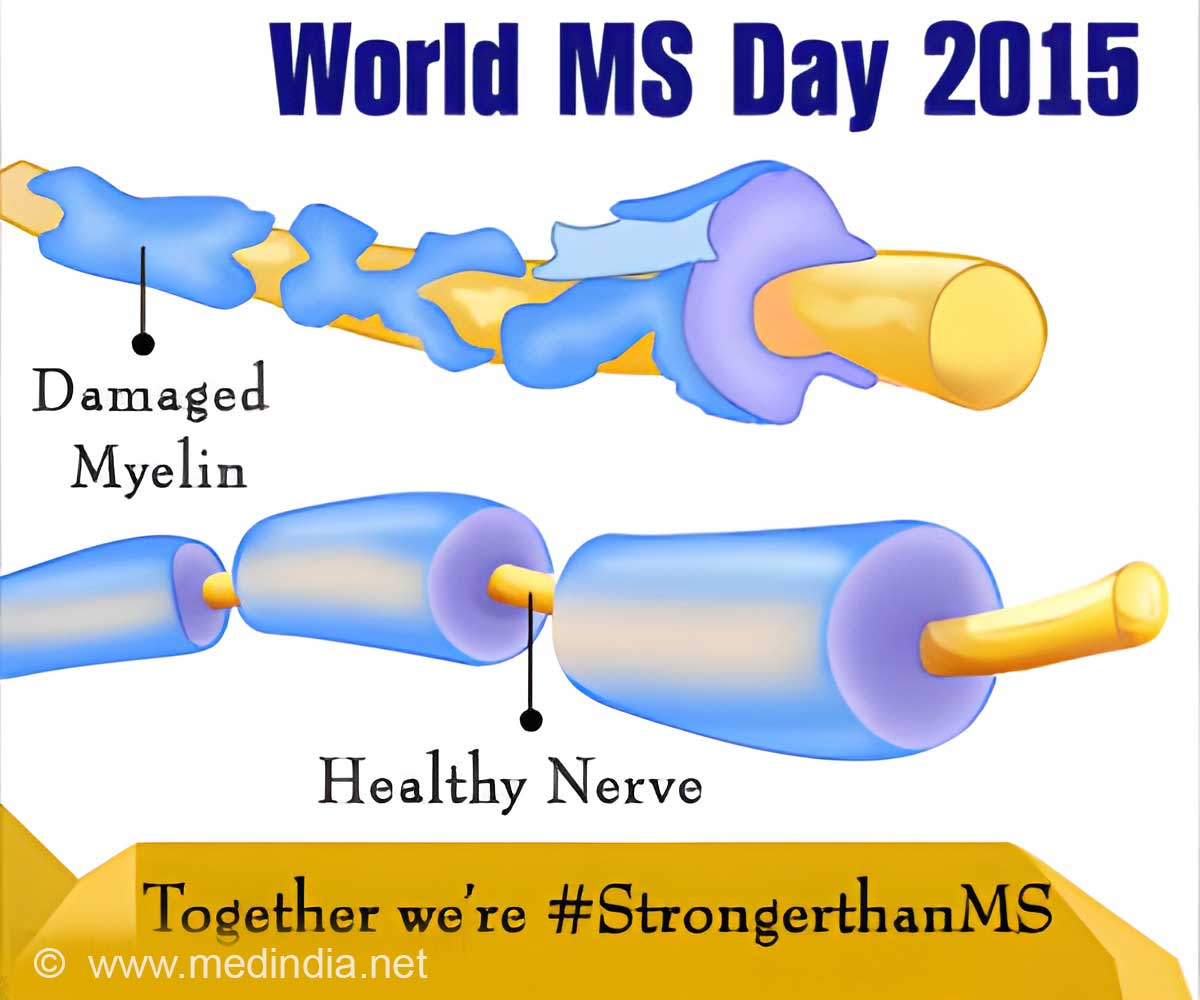On World MS Day, a cheerful 37-year-old single mom in India recounts her personal journey of living with Multiple Sclerosis.

The 37-year-old school MBA graduate from Chennai, a southern city in India, has Multiple Sclerosis (MS). “Actually, I have remitting relapsing MS,” she’s quick to point out. You would never guess Madhu has a degenerative disease. She is as active as her body allows her to be, takes pleasure in small things and loves spending time with her son.
Multiple Sclerosis is a neurological disorder in which your immune system attacks the protective sheath (myelin) that covers your nerves. Myelin sends signals between your brain and the rest of your body, and when that ruptures, your body malfunctions. Eventually, over a period of time (which varies with different people with MS), the nerves themselves deteriorate – and this is irreversible. There is no cure for MS, and neither are there any symptomatic diagnoses that can catch it early. Multiple Sclerosis is a progressive disease that can hibernate for long periods and suddenly flare-up.
Causes for Multiple Sclerosis are Undetermined
It was in November 2002 when Madhu had her first symptom of Multiple Sclerosis – she lost vision in her right eye. On Saturday, I had blurred vision for most of the day, and by Sunday evening, I felt as though I was looking through a veil. I visited the ophthalmologist, who put me through a series of tests,” she says matter-of-factly.Though his initial diagnosis cleared her of any serious problem, he asked her to take a brain scan and some blood tests. “He diagnosed it as demyelination that had led to Optic Neuritis (inflammation of the optic nerve). He said it was a temporary condition and put me on steroids for five days. By the 4th day, my vision was crystal clear,” explained the single mother of a 10-year-old boy.
There was no mention, not even a whisper or a suspicion of MS at that time. How can there be? There was barely any awareness about Multiple Sclerosis in India, and there was also a theory that said it doesn’t affect people living in equatorial climates. Besides, why would a doctor relate blurry vision to MS?
For the next couple of years, Madhu’s life was rather eventful. Having always been a curvy woman, she focused on losing weight for her wedding in 2003. She lost 27 kilos in a little over a year. There were a few times in the gym when she would have blurry vision. When Madhu visited her ophthalmologist again, he put her on Methycobol and Complamina – two health supplements. “I took them sporadically – as soon as my vision returned, I’d stop taking them. Call it youthful arrogance, but I thought I was healthy enough to avoid being consistent.”
When Symptoms Struck, It was a Nightmare!
In April 2004, Madhu had another symptom that eventually led to the diagnosis of Multiple Sclerosis. “I lost bowel and bladder control when I was watching TV with my family and I didn’t even realize it immediately. It happened a few times but I attributed it to food poisoning and excitement.”She was rushed to the hospital, where a neurologist told Madhu’s parents that she had developed lesions in her spine and linked it to the loss of motor power and strength in her leg. “He said my immune system was attacking the myelin sheath, and that my nerves have become too sensitive to send or receive signals to the brain. I did not understand the implications of what he had said. My only concern was whether I’d walk again.”
As it happens when too many family members get involved, the scene in her room was chaotic. “Nobody was talking to me but I could hear chatter about wheelchair and rehab. They were giving me example of a President that ruled America in a wheelchair. My mother was inconsolable, and I was overwhelmed.”
When Madhu broke down crying, the hospital assigned a psychiatrist to visit her. “I was a newly married woman. It was traumatic enough that I couldn’t move my legs and my in-laws were already talking as though I was damaged goods. On top of that, the psychiatrist put me on antidepressants. I wish someone had explained stuff to me rather than talking among themselves and making decisions. I mean, I had no idea what the hell was going on!”
Unsupportive and Insensitive Family
After she was discharged, Madhu underwent intensive physiotherapy for 3 months to regain strength in her weak legs – they would buckle every 4th step she took. Taking oral steroids and antidepressants led to massive weight gain — Madhu gained 22 kilos in less than 6 months and had extreme mood-swings. She also suffered from chronic fatigue, which is common among most people with Multiple Sclerosis. Plus the stress of dealing with an unsupportive husband and in-laws took a massive toll on her.“Many nights, I’d wake up screaming. It felt as though someone had poured boiling water on my legs. Medications had made my nerves THAT sensitive. All my in-laws were concerned about was whether I could have children. They did not want their son to be burdened with a wife who had a chronic and debilitating disease. I felt heavy, bloated…like a zombie on most days. Just a year ago, I was 27 kilos lighter and fit as a fiddle, and suddenly, I was faced with the possibility of not walking again.”
Madhu also suffered from Necrosis – failure of blood supply to the muscles, for which she was taking more medications.
“Weight gain was one of my biggest nemeses. Every time, family members visited me, they’d only talk about my weight. Nothing fit me – not my nightwear, undergarments, T-shirts, track pants…not even clothes from my wedding trousseau, which were just 8 months old. And because my legs were still weak and I was undergoing physio, I was unable to shop for new clothes. I felt so unattractive and refused to go out anywhere.”
It sounds vain and perhaps silly to be bothered about your looks when your life is falling apart, doesn’t it? “When you’re newly married, lack of sex life should be least of your worries. But my weight gain was a turn off to my ex-husband. It was a huge blow to my self-esteem as well.”
Diagnosis of Multiple Sclerosis
Within a few months though, when she got back on her feet, literally, she began scouting for answers to her problem. After visiting some of the top neurologists in India, who claimed Madhu suffered from demyelination, she met a neurologist in Chennai, who diagnosed her with Multiple Sclerosis. “Until then, nobody had correlated Optic Neuritis (my eye problem) with MS. When I told him about all my health issues, he said I was MS-suspect. He said my condition was beyond all hope and that if my symptoms worsen, I should take Interferon injections.”Interferon is an immune suppressant that people with Multiple Sclerosis have to take for life. For instance, if you are on Interferon medication like Avonex (an injection in a prefilled syringe) for relapsing remitting form of MS, it costs around Rs.35,000 a month for 30 micrograms once a week. In addition to that, there are side-effects; some of which is related to the decrease in the count of white and red blood cells and platelets (decrease is dose-dependent) that could make you prone to infections, and also dizziness, anemia, hair thinning, loss of appetite and generalized aches and pains.
The implications of being dependent on Interferon scared Madhu. So she did a lot of research – and all of it led her to the Mayo Clinic in Minnesota, USA.
Doctors at Mayo were a revelation to Madhu. The ease with which they talked about MS and its treatment allayed her fears a bit. “These doctors answered every query and cleared all doubts about my health. They did not talk over me or down to me. They were encouraging and said that MS is a manageable disease if I took my meds diligently. They had only 2 suggestions: take MRI scan of the brain and spine every 18-24 months, and interferon injections ONLY if I had another episode.”
Cruel Husband and a Child with Special-Needs
Thankfully, Madhu had no further episodes – except when she’d run to the phone, she’d stumble and fall. But she learned to manage that too. In 2005, Madhu and her husband moved to the US, and she was beginning to settle down in her marriage. When she visited Mayo again with a new set of MRIs, she got good news – there were no new lesions.Soon, she became pregnant. Madhu was elated, as becoming pregnant was the best thing that happened to her…but not for the reasons you think. During pregnancy, the adrenal gland produces natural steroid hormones like cortisol that keep lesions at bay and hence, beneficial for someone with MS.
Her pregnancy was smooth-sailing physically, but she wasn’t happy. Madhu’s husband was verbally abusive. “He used my illness as an excuse to portray me as a needy wife. He was critical about everything I did. He played my insecurities about my weight to the hilt and made me feel worthless.”
A few weeks after her son was born, her husband walked out of their marriage and applied for divorce. “It was a huge relief – but it was also tough for me as a single mom, running a thriving business in the real-estate industry and battling a disease whose symptoms were unpredictable at best.”
Madhu’s son was born with numerous health concerns, due to which she was in-and-out of ERs every other week. When he was barely two, he was diagnosed with mild Autism. “He’d have behavioral problems and was sick all the time. Doctors at the local hospital were about to call social services because they assumed I was hurting my child. My ex went out of his way to make it difficult for me to attend divorce proceedings there. The stress of dealing with all of this increased the frequency of dizzy spells.”
After she got divorced in the US, Madhu came back to India in 2007. For the next couple of years, she struggled to raise a special-needs child who needed speech therapy, behavioral therapy and occupational therapy. She was sleep-deprived, stressed and exhausted. Since she did not have the luxury of giving into fatigue (another symptom of MS), it increased her stress levels. Stress is a major trigger for MS symptoms — in her case, leg buckling, which increased frequently.
In addition to this, both mother and son faced social ostracization. “One of my close friends wouldn’t send her son to my house because she believed I was jealous of her happy marriage and ‘normal’ child.”
Relapsing Remitting MS
Madhu’s battles were far from over. Towards the end of 2010, she began having memory lapses. “I couldn’t remember my school mates or many people I had grown up with. And I couldn’t recall a chunk of period I spent with my ex in the US. It was a shock as I was known for my photographic memory. I did many MRI scans in 2011 – I wanted to know what was happening to my memory. Scans didn’t show anything. So my neurologist and my family did not take me seriously – they thought I was being spoiled and acting snooty.”However, her doctor was quick to diagnose her with suppressed depression and referred her to a psychiatrist who put her on anti-depressants. “When a doctor gives you a diagnosis, you don’t doubt him or even question his analysis. It wasn’t until a couple of years later that I discovered he was wrong – I did not have depression. It was one of the symptoms of Multiple Sclerosis, which my neurologist wasn’t aware of!”
In 2013, her brother’s marriage was one of the most trying times for Madhu – both physically and mentally. Her son’s behavioral problems exploded, and cousins and their family were disgustingly judgmental. “They called me a loser – someone who couldn’t be a good wife and a good mom. Since I was the only one disciplining my son, he resisted my attempts at getting close to him as much as possible. It’s bad enough to feel like the worst mother in the world…but this was too much.”
Often, people do not understand that while battling a neurological disorder like Multiple Sclerosis, it is absolutely imperative to be religious about taking medications and following-up with routine tests. Madhu was so depressed and overwhelmed with the everyday challenges, she forgot to go for her annual MRI scan.
She also had a freak accident while climbing the stairs. “I heard something snap…I didn’t think anything of it. There was just mild pain in my leg throughout the night. But by next morning, my leg had swollen like a tree trunk. My orthopedic said it was soft tissue injury, and advised me complete rest for a few weeks, and physiotherapy thereafter.”
A couple of months later, when her son met with an accident, she had to rush him to the hospital. While driving her car, she reinjured her leg, which hadn’t healed properly. So she was back to physio and a whole of medications for a few weeks.
In 2014, she was feeling better — though she suffered from weakness in the legs, blurry vision and muscle spasms, she also learned to manage them. Madhu was, finally, enjoying time with her son, whose behavioral issues were next to zero, when she came down with the flu.
Her health nose-dived from there on.
She began feeling dizzy and disoriented all the time. Her ENT doctor prescribed her with meds like Vertin and Stugeron which helped her briefly but she was still seeing blurry images. She couldn’t even stand on her own. The room would spin every time she stood-up. Obviously, she couldn’t drive in such a condition and till today, she is dependent on someone else for commuting.
She finally went for an MRI that showed 42 new lesions in the brain and a few in the cervical area.
The New-Age Treatment for Multiple Sclerosis
Though there had been no major exacerbation of symptoms, Madhu’s neurologist immediately prescribed Interferon injections 3 times a day for the rest of her life. “To hear about 42 new lesions was overwhelming! Future seemed uncertain. I was worried about my health and my son’s future without both parents. Yes, I began imagining the worst case scenario.”This is when someone suggested a doctor in Bangalore who had treated patients with Multiple Sclerosis in the US for over 30 years. When Madhu spoke to her parents and brother about it, they were more than helpful. “I couldn’t have survived without their support! I could barely stand without someone holding my hand – I was still feeling dizzy all the time. Along with my mother, somehow I traveled to Bangalore to meet him. He said I have to dedicate the next 16 to 24 months to treatment and avoid anything or anyone giving me stress.”
Madhu’s doctor did not promise her a cure. But she has done enough research to know that none of his MS patients are in a wheelchair. “Within 10 days of taking his treatment, my dizzy spells stopped. I don’t have to worry about starting Interferon shots any more. Among a host of health supplements, reflexology & infrared treatments and intravenous medications, he has also put me on magnesium supplements. There are ozone shots to the knee which makes me great when I walk. Imagine enduring pain in your leg in different places every day for over a decade…compared to that, now I get leg spasms once every few weeks. I also suffer from nutritional malabsorption due to leaky gut, and he’s treating that as well.”
She has to avoid milk and wheat, and all related products from her diet. Her body has to be chemical-free as much as possible – it means no deodorant, nail polish, perfume, powder, aerated drinks and so on.
Madhu’s treatment, which costs over Rs.1 lakh a month, sounds like an expensive quick fix for a serious neurological problem but she swears by it. “Many regular medical practitioners dismiss holistic healing (treatment of mind, body and soul) as some new-age rubbish but look at the results – I barely have any dizzy spells, my leg spasms have reduced to perhaps a monthly occurrence from a daily thing and side-effects of taking steroids such as acid reflux, risk of peptic ulcer, hunger, etc have reduced drastically.”
Her only goal is to keep the door shut on the progression of Multiple Sclerosis. “I am not recommending this treatment to anyone with MS. Always get a proper diagnosis, do your research and choose a treatment appropriate for your condition. But in my case, I do not want remitting relapsing MS to become secondary progressive. It’s either that or, just give into the disease and wait for an excruciatingly painful life. Tell me, which would you choose?”
(***Name changed to protect privacy)
(This article is published solely for creating awareness about Multiple Sclerosis. Medindia does not endorse scientifically unverified treatments mentioned in this story.)
Source-Medindia











